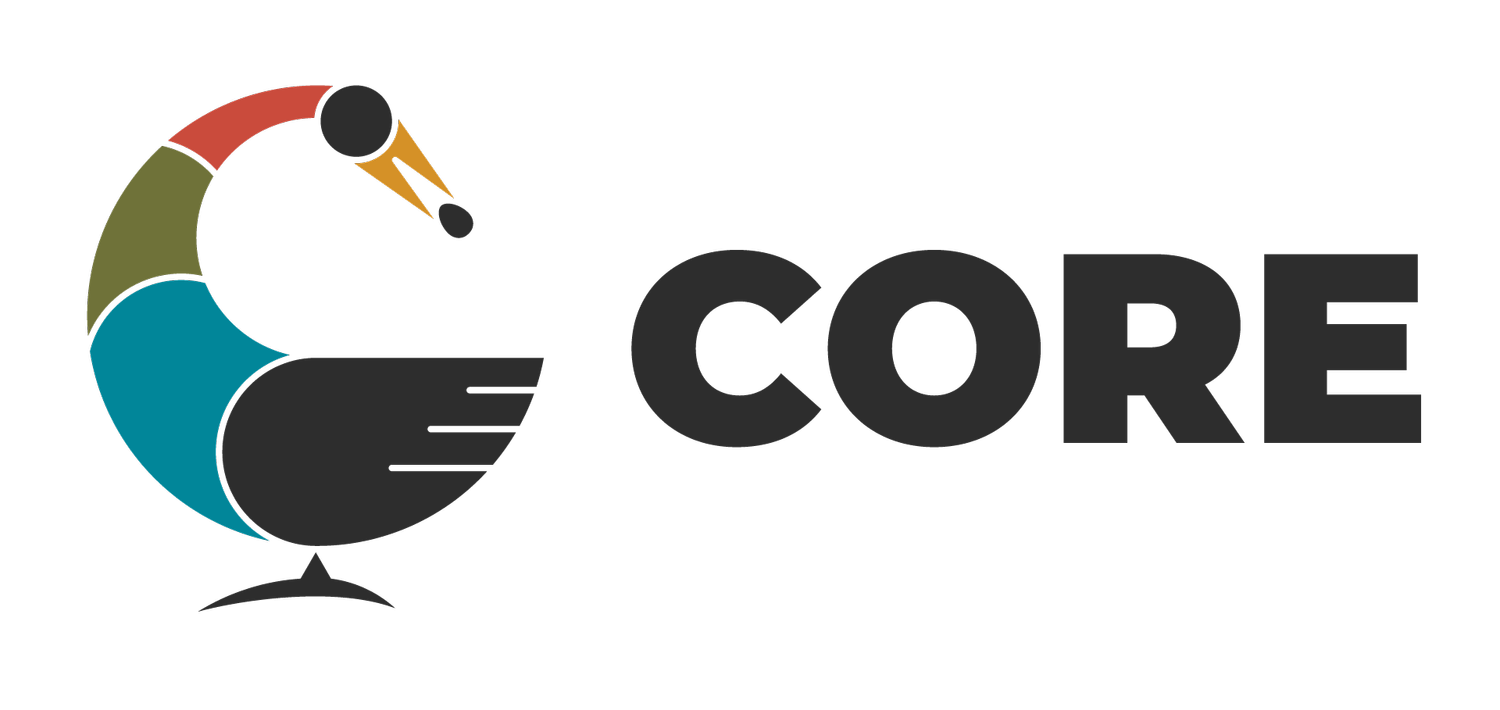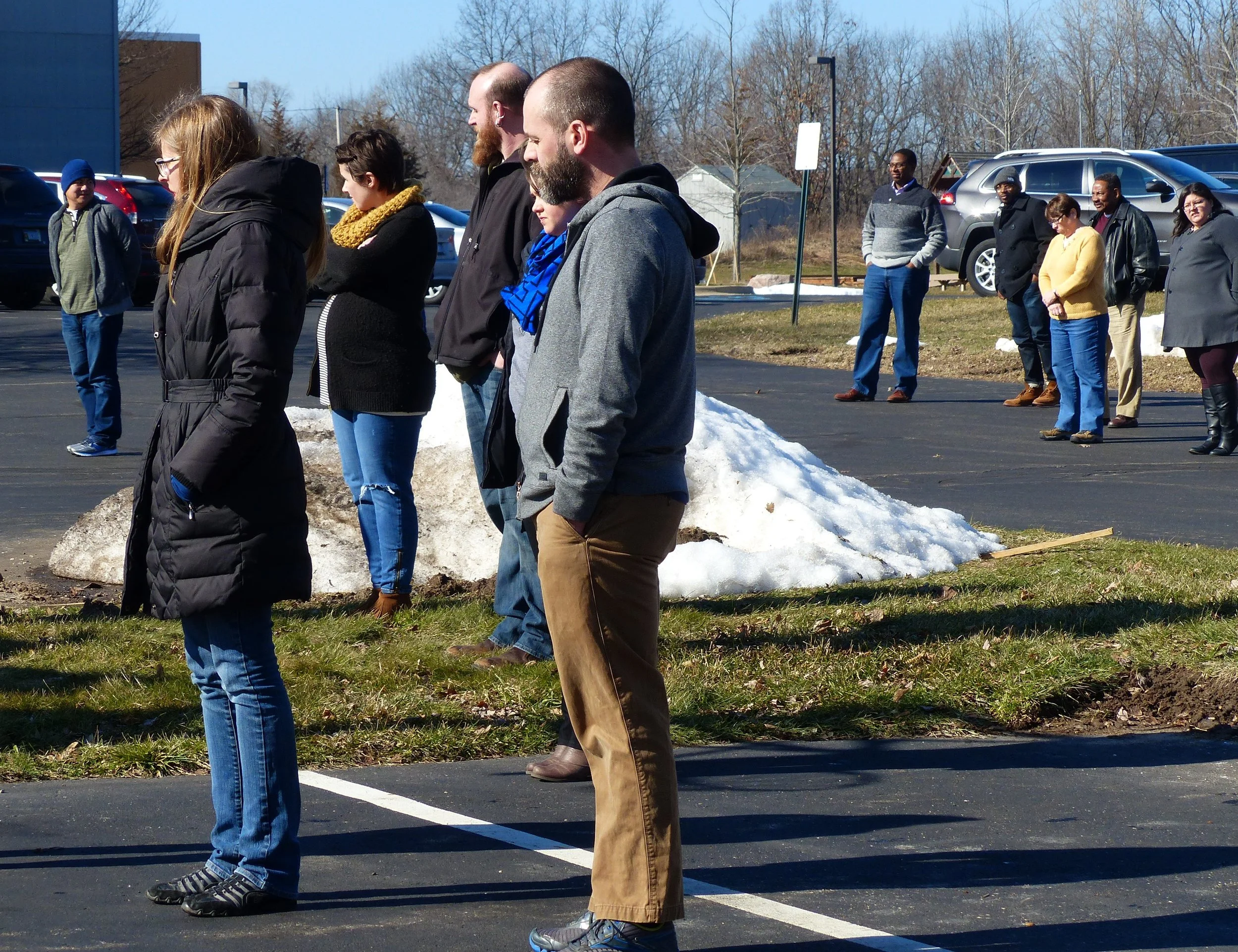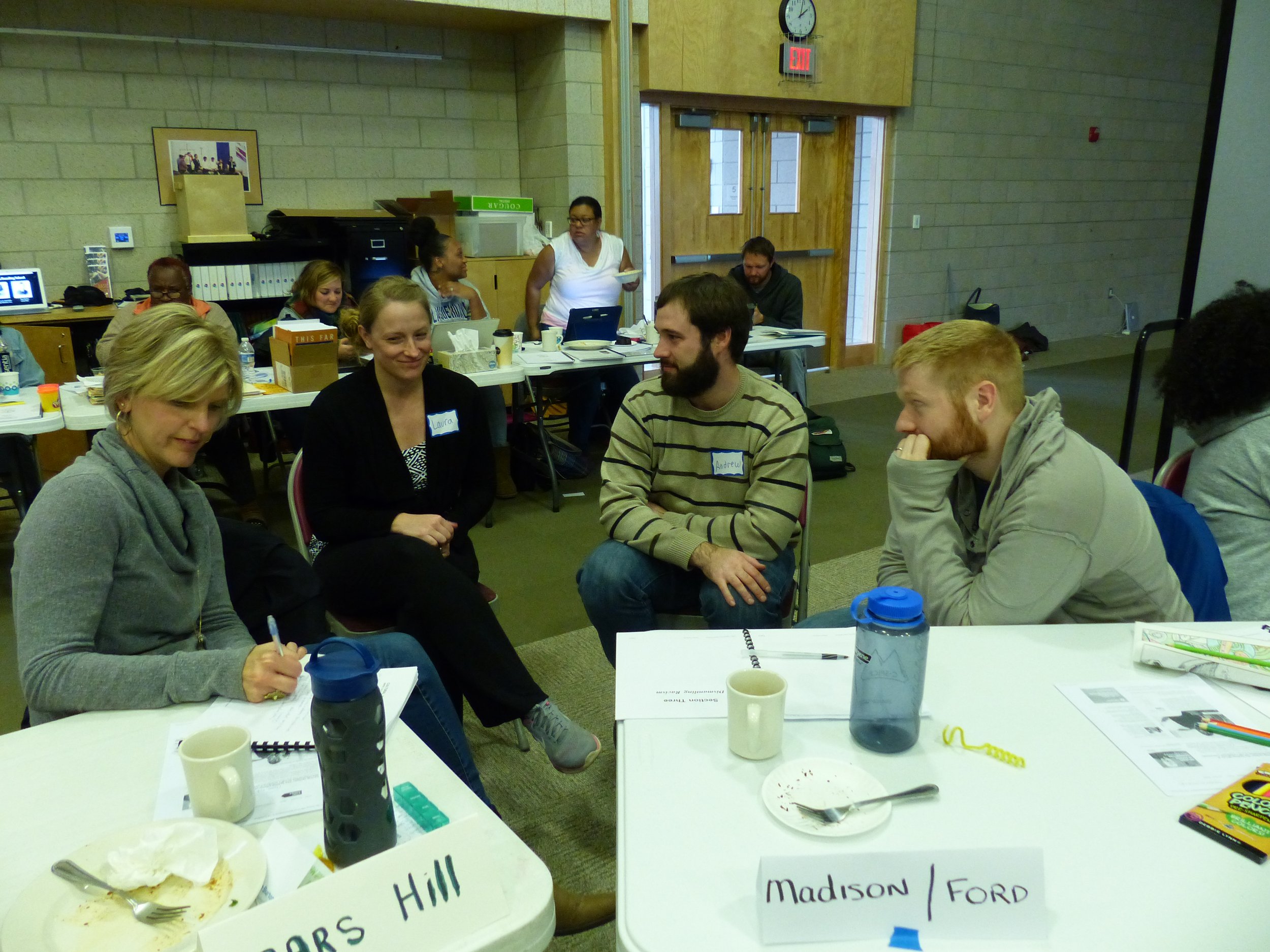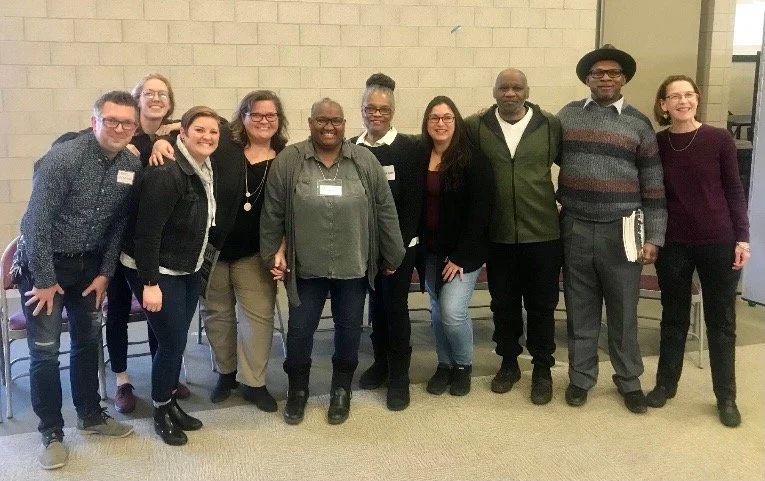Our Framework: The Three Legged Stool
When I was a kid, my grandpa had a three-legged stool in his woodshop. He built it himself, and the thing was super sturdy. Unless one of the legs happened to be resting on a stray piece of wood or other dropped item that caused the legs to be uneven and tilt. The stool then became useless for anything, aside from severely twisting your ankle if you stepped on it without realizing it was uneven.
-Hannah DeVries, CORE Facilitator and Coach
CORE use a three-legged stool as an analogy for the work needed to fight racism. Each leg represents part of what we need to do in order to be anti-racist and work towards transformation in society. If we only focus on “growing” one or two legs, our stool will become unbalanced, tip over and set us back. Our goal is to work on each leg equally to ensure the impact is sturdy and sustainable. The legs represent education, internalization, and organizing. Continue below for further explanation and to see what we offer to address each of these areas.
Digger Deeper: Education.
History matters. History teaches us about our context and the narratives, behaviors, and values held by those who came before us. This is the lifelong work of self-education about own racialized group, as well as learning more about other racialized groups. Think of this as fighting the racism of the past and present, including the history of racism against various racialized groups, the laws with racially-disparate outcomes for different racialized groups, and the ways individuals and groups have resisted oppressive systems, beliefs, and stories. Learning about our history also allows us to learn from past mistakes and make changes to not make the same missteps again. It gives us a common understanding and foundation for working towards change.
CORE offers Understanding Racism and other customized workshops to expand awareness of our history. These workshops aim to:
Grow awareness to fully understand the problem of racism. Our diagnosis informs treatment.
Develop a shared language and framework of the historical context in the US and beyond.
Combat dehumanization and humanize those we have “othered” by lifting up stories and voices that are often silenced or go unheard.
Uncover messages about race, racism, and other oppression that we have internalized and must seek to unlearn.
Begin Your Work: Internalization.
Throughout scripture humans are affirmed as God’s image bearers. However, racism has hijacked our identity, diminishing and discounting our human worth. The presence of systemic racism is so engrained across society and culture that we have internalized its distortions and lies. This disconnects us from ourselves and others. Gaining awareness of the history and present reality of racism is not enough. Instead, we must search for and uncover how racism has been internalized within us.
This is our work. All of us. Reflecting on our internalization and unlearning it. This the lifelong work of getting sober from the effects of racism on your racialized group. Think of this as fighting the racism in you at present.
To address our internalization, we use the tool of caucusing, where we come together as a multicultural and multiracial collective to:
Ask the question: “What did racism do to me?”
Push against radicalization and dehumanization to reclaim our authentic identities in Christ.
Explore with the accountability of community so that my work becomes our work.
Create Sustainability: Organizing.
The last leg of the stool is all about making your education and internalization work sustainable and implementing strategies to actually lead to change. Racism is extensive, entrenched, and persistent. Without strategy and persistence from us, nothing will change.
Therefore, we need to use our awareness and resources to engage in the lifelong work of making Anti-racist systemic changes in our institutions, communities, and world. Think of this as fighting the racism of the present and forward into the future. One of the most crucial things to remember when organizing is: you cannot do this alone. For lasting change, we must unite to co-labor and create together.
CORE assists in organizing by coming alongside organizations and coaching them in multi-racial pairs. This coaching can begin before or after attending a workshop. If you are interested in pursuing a coaching relationship, we can help your institution form and maintain an anti-racism team and focus on:
Building on education and internalization work, which will lead to mutual respect to bring all voices to the table.
Encouraging intentionality of work and pushing against cultural messages of urgency and quantity over quality.
Sustaining this long-term work that is a marathon, not a sprint, including when momentum is lost.
Creating agility to modify strategies and adapt to internal and external climates.
Developing accountability to Black Indigenous People of Color (BIPOC) communities.











